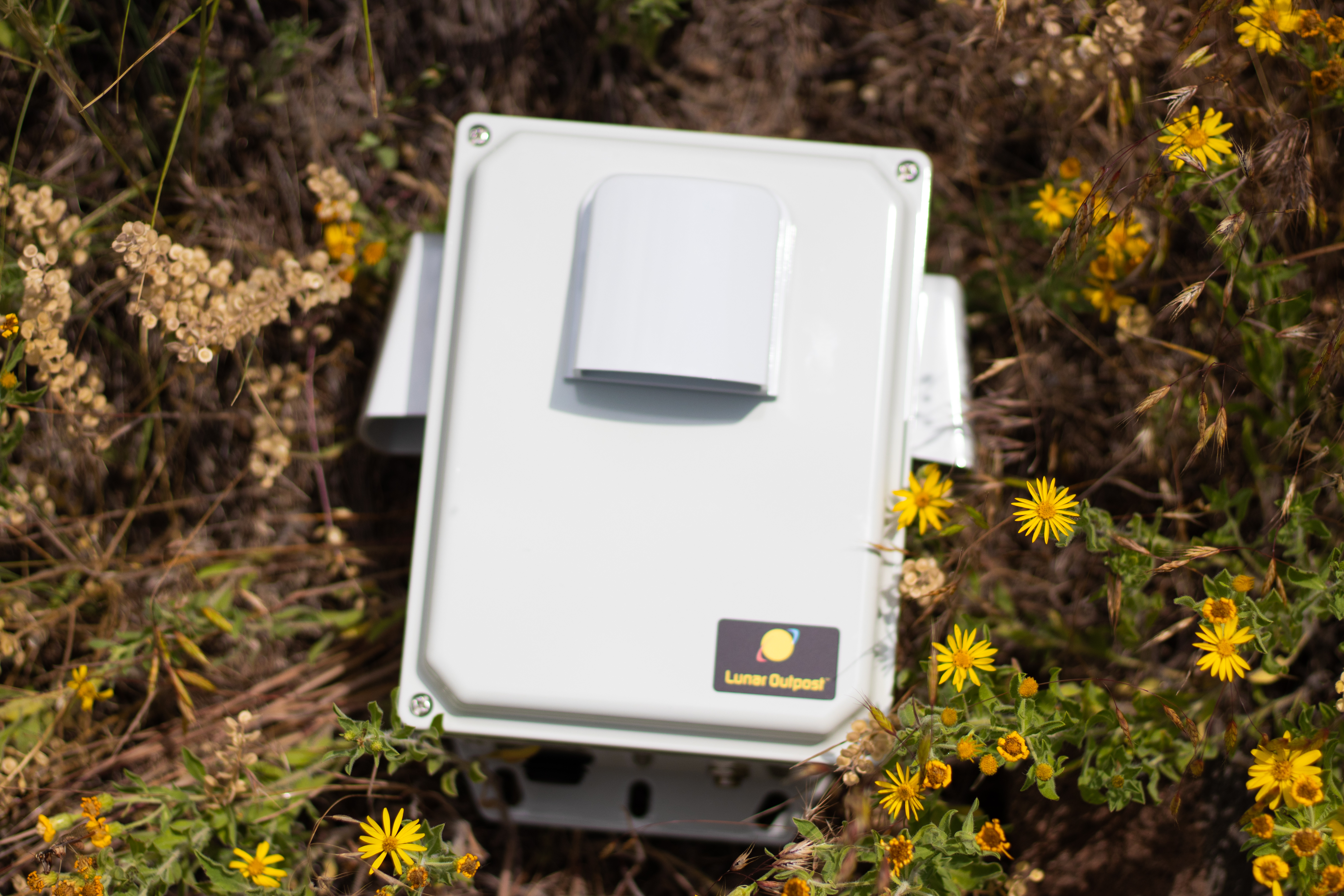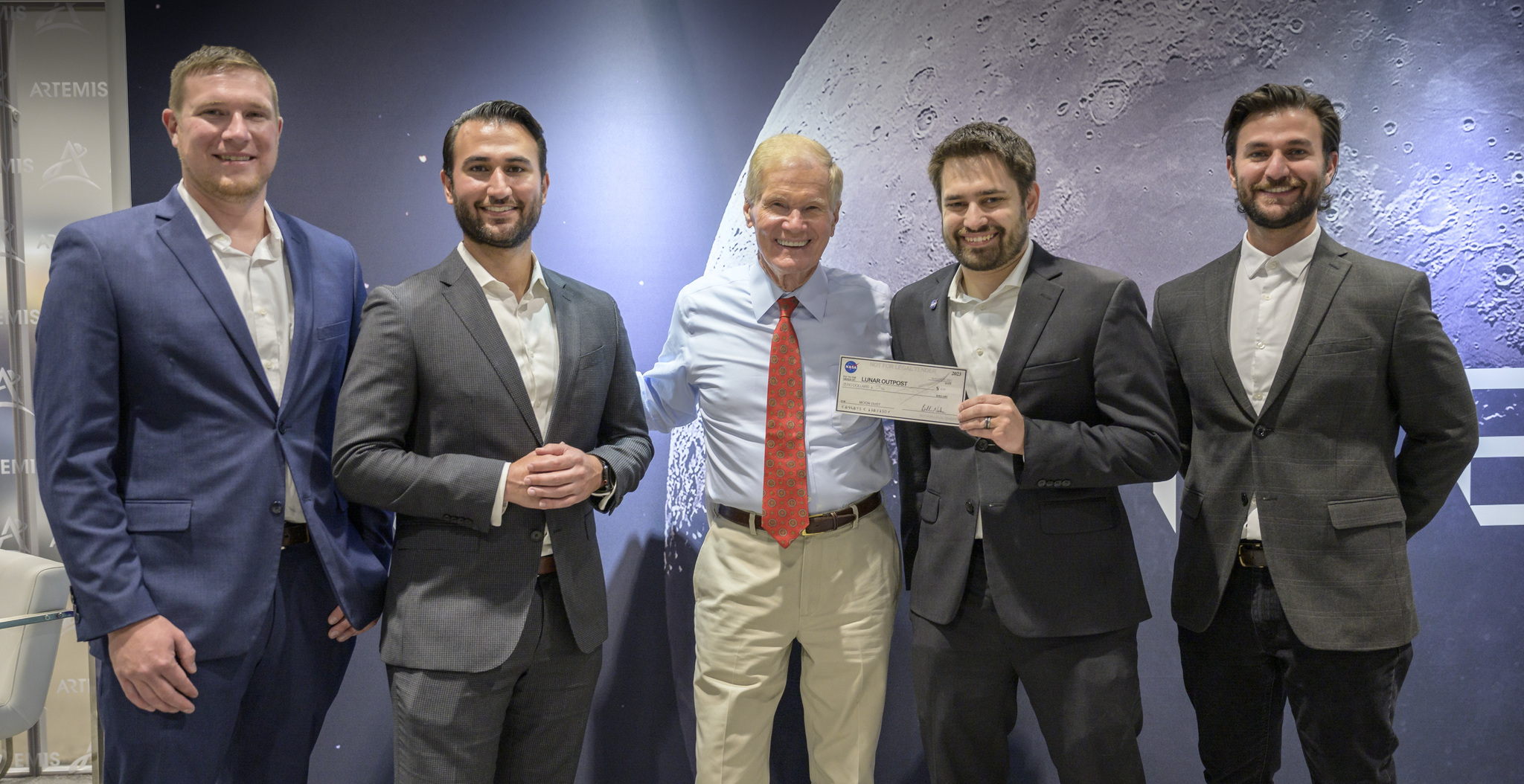“This is going to be the largest market in human history.”
Justin Cyrus, co-founder and CEO of Lunar Outpost, is referring to the space economy: the slew of activities that could take place around or on the Moon, in the orbital space around Earth, or beyond. Lunar Outpost, a company that is developing rovers and other technologies for terrestrial and space applications, is determined to have a stake in this future, even amidst an increasingly crowded playing field of startups and primes also looking for their slice of the pie.
That’s part of the reason why, five years after being founded and trucking along with remarkable profitability for a space startup, Colorado-based Lunar Outpost decided to seek venture funding for the first time. The result was an oversubscribed $12 million seed round the company closed in May, led by Explorer 1 Fund with participation from Promus Ventures, Space Capital, Type 1 Ventures and Cathexis Ventures.
Lunar Outpost is banking on early experience giving it a big boost against competitors, and so the company already has a handful of space missions lined up for 2023 and beyond. For the first mission, Lunar Outpost will send a 10-kilogram rover, called the Mobile Autonomous Prospecting Platform (MAPP), to the Moon’s South Pole in a mission in partnership with Nokia and Intuitive Machines in early 2023. The company is also sending a rover to explore the mysterious Reiner Gamma feature on the Moon in a fully-funded mission for NASA, also in partnership with Intuitive Machines. To top it off, it’s part of a team that includes Northrop Grumman, Michelin, AVL and Intuitive Machines that’s bidding on a contract to build a crewed lunar terrain vehicle for NASA.
“We saw our competitors starting to try to catch up and we felt like this funding can not only be utilized to further differentiate ourselves, and dig a little bit of a moat, if you will, but also accelerate our commercialization timeline for cislunar space,” Cyrus told TechCrunch in a recent interview.
An alternate path to the moon
In some ways, Lunar Outpost has already differentiated itself, by taking a different path to market than many other space startups. It did so by commercializing an air quality sensor – one that was designed as part of a NASA contract bid with Lockheed Martin to build a lunar orbit habitat prototype. When Lockheed didn’t win the next phase of that contract, Lunar Outpost pivoted the product, using it to help the City of Denver win a $1 million contract to monitor air quality in Colorado schools. That air quality sensor, which the company calls Canary, is now used in over 35 states.

As a result, Lunar Outpost has been bringing in revenue far earlier than many other space startups. “Last quarter, we actually had more revenue than a couple of publicly-listed space companies,” Cyrus said. “That is very much by design.”
Lunar Outpost is also working on creating a terrestrial version of its MAPP rover line, and has started piloting prototypes of a 300 kilogram-classed version for both Earth and space. In the future, Cyrus said the company could even design rovers that are upwards of 1,000 kilograms, to move materials on the moon and extract resources. He added that growth of the terrestrial-based product lines was another impetus for seeking outside investment.
“We did need to build out our team, to build out our facility, to keep up with demand for those terrestrial products,” he said.
Justin Cyrus, who is a graduate of the University of Colorado Boulder and the Colorado School of Mining, worked on military satellites for Lockheed Martin before founding Lunar Outpost with his brother Julian Cyrus and Forrest Meyen in 2017. The company’s initial steps on the moon will be with the rovers, but Cyrus said the long-term vision is to help generate a legal and economic framework for space resources.
Lunar Outpost has already set its sights on in-situ resource utilization (ISRU) — a fancy way of saying ‘using resources found in space, in space’. The company, in partnership with MIT and NASA, demonstrated ISRU onboard the Mars Perseverance rover, using a piece of technology called MOXIE (Mars Oxygen In-Situ Resource Utilization Experiment). It generated 5.4 grams of oxygen in under an hour.
Cyrus pointed to a separate NASA award Lunar Outpost received in 2020 to collect lunar samples and sell them to the agency. Lunar Outpost, one of four companies to have received an award under this NASA initiative, offered to sell any lunar materials it collected for $1. It’s a largely symbolic amount that Cyrus said is helping set norms and standards around the collection and sale of space resources.

The Lunar Outpost executive team with NASA Administrator Bill Nelson. From left to right: AJ Gemer, CTO; Justin Cyrus, CEO; NASA Administrator Nelson; Dr. Forrest Meyen, CSO; Julian Cyrus, COO. Source: Lunar Outpost
The awards were structured so that NASA paid the companies 10% of the total amount at the outset of the award, so that means Lunar Outpost’s check was valued for just 10 cents. But Lunar Outpost sees that as just the beginning.















 English (US) ·
English (US) ·